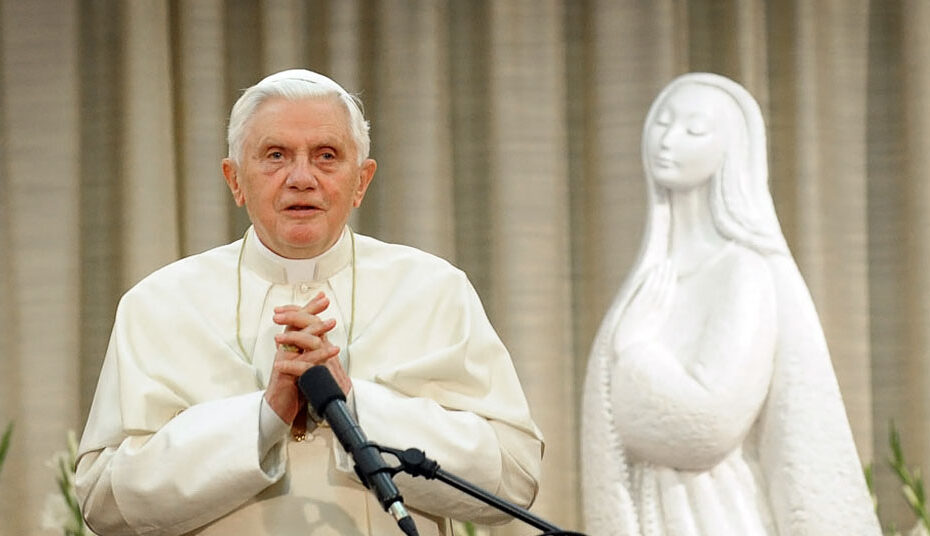By Judie Brown
Ever since I read The Ratzinger Report in 1986 I have been in awe of the man who would become Pope Benedict XVI. And today, even though he is gone from this life, his writings still bring inspiration to many people.
Catholic writer Isabel Barry reminded us of his brilliance in a recent article, saying he wrote 66 books, which means that my library is wanting. But thanks to the Internet, accessibility to his wisdom is available to everyone.
In 2012, his Christmas homily contained words that are more relevant in 2024 than ever before:
So Christ is our peace, and he proclaimed peace to those far away and to those near at hand (cf. Eph 2:14, 17). How could we now do other than pray to him: Yes, Lord, proclaim peace today to us too, whether we are far away or near at hand. Grant also to us today that swords may be turned into ploughshares (Is 2:4), that instead of weapons for warfare, practical aid may be given to the suffering. Enlighten those who think they have to practise violence in your name, so that they may see the senselessness of violence and learn to recognize your true face. Help us to become people “with whom you are pleased”—people according to your image and thus people of peace.
It might be said that one could spend weeks, if not years, learning from examples such as this how much the pope loved being an ordained priest who devoted his life to truth. In fact, in The Ratzinger Report, he said, “The world waxes indignant when sin and grace are called by their names. . . . It is time to find again the courage of nonconformism, the capacity to oppose many of the trends of the surrounding culture, renouncing a certain euphoric post-conciliar solidarity.”
Ratzinger saw early on the conflict that the faithful Christian must contend with every moment when confronting the world’s detestation of holiness and devotion to pride, lust, and the remainder of the seven deadly sins. Ratzinger’s clarity of thought resounds through the pages of this book as he guides us along the path toward Christ and away from all that is unspeakably hideous.
Later in the interview he explains: “Christians must not be too easily satisfied. They must make their Church into a place where beauty—and hence truth—is at home. Without this the world will become the first circle of hell.”
There is so much to learn from this remarkably holy, intelligent, and gentle pope that the words he has written fill volumes. In fact, in a wonderful collection of his writings entitled Benedictus we find this reflection: “The universe is not the product of darkness and unreason. It comes from intelligence, freedom, and from the beauty that is identical with love. Seeing this gives us the courage to keep on living, and it empowers us, comforted thereby, to take upon ourselves the adventure of life.”
Catholic people are blessed to have had Pope Benedict XVI. While we are saddened that he resigned and has since passed away, we are grateful that he was with us a priest, bishop, cardinal, and pope.
Reflecting on his remarkable life just a little over a year after his passing, we continue to pray for the happy repose of Pope Benedict’s soul, knowing that in His wisdom the Lord is now affirming one of the Church’s most insightful teachers.
